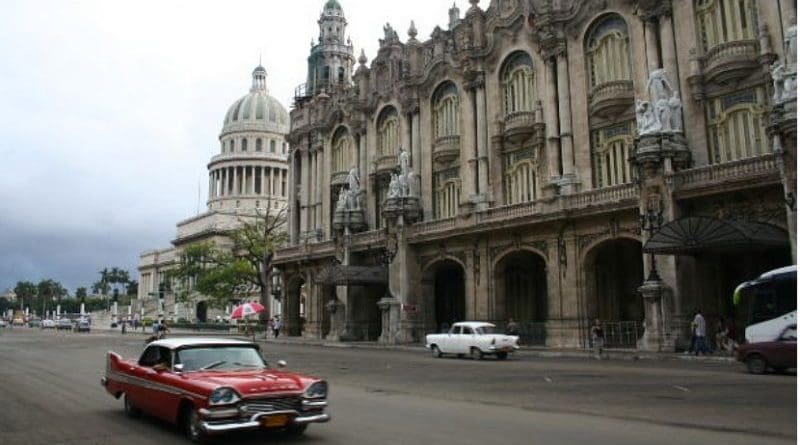EU Threatens WTO Action After US Paves Way For Cuban Property Lawsuits
By EurActiv
By Benjamin Fox
The EU has reacted angrily to a Trump administration announcement that Americans to sue foreign firms over seized Cuban property, threatening to take a case to the World Trade Organisation.
On Wednesday (17 April), US National Security Adviser John Bolton said that Americans will be able to sue foreign companies that do business in Cuba on property there seized from Americans, at a speech to commemorate the 58th anniversary of the Bay of Pigs fiasco, the failed invasion of Cuba backed by President Kennedy.
The new policy is the result of President Trump ending the suspension of Title III of the Helms Burton Libertad Act passed by Congress in 1996 but mothballed by successive US Presidents.
A senior State Department official said that the move was a response to Cuba’s “malign activity” in the region.
“The purpose of the legislation was justice for those who had their property taken,” a senior State Department official said.
That could put European firms at risk of legal action. The EU is the biggest foreign investor in Cuba.
“We will not allow those who traffic in expropriated property off the hook. Any company that traffics in that property could be liable under this law,” the official added.
Some of the ‘trafficked’ properties have changed hands many times since they were originally nationalised by Fidel Castro in the 1950s.
“Cuba shows no sign of moving towards democracy…and actively undermines democracy in the region,” said the official.
The move is widely seen as punishment for Cuba’s support for Nicolas Maduro’s regime in Venezuela.
The US accuses Cuba of sending troops and intelligence operatives to support the Maduro regime.
“There is military intervention in Venezuela from Russia, Iran, and Cuba to prop up the Maduro regime. It is widely known these (Cuban) officers are deeply entrenched with the Venezuelan state and put of Maduro’s inner circle,” said the State official.
In a joint statement, the EU’s High Representative for Foreign Affairs, Federica Mogherini, and Trade Commissioner Cecilia Malmstrom expressed “strong opposition to the extraterritorial application of unilateral Cuba-related measures that are contrary to international law.”
“This decision is also a breach of the United States’ commitments undertaken in the EU-US agreements of 1997 and 1998, which have been respected by both sides without interruption since then,” they stated.
They added that the EU would consider taking the matter before the Geneva-based WTO, and would consider using the EU Blocking Statute which allows EU companies sued in the US to recover any damage through legal proceedings against US claimants before EU courts.”
“We believe that the issue of outstanding US claims should not be conflated with the cause of furthering democracy and human rights in Cuba, or by our shared desire urgently to find a peaceful and democratic solution to the crisis in Venezuela,” Mogherini and Malmström wrote in a letter to US Secretary of State Mike Pompeo on 10 April.
The State Department official conceded that the EU and other countries were strongly opposed to the change, but insisted that “there is no targeting of any countries…it is about targeting the Cuban regime”.
“It’s fair to say that we all agree on the broader strategy on promoting democracy in Cuba, but there is some disagreement on the tactics to get there,” she added.
Canada’s Foreign Affairs minister Chrystia Freeland said that her country was “deeply disappointed” and would be “reviewing all options in response to this US decision”.
US officials have hinted that the value of compensation demanded could be in the tens of billions of dollars, but have not given an estimate on how many companies could be involved.

